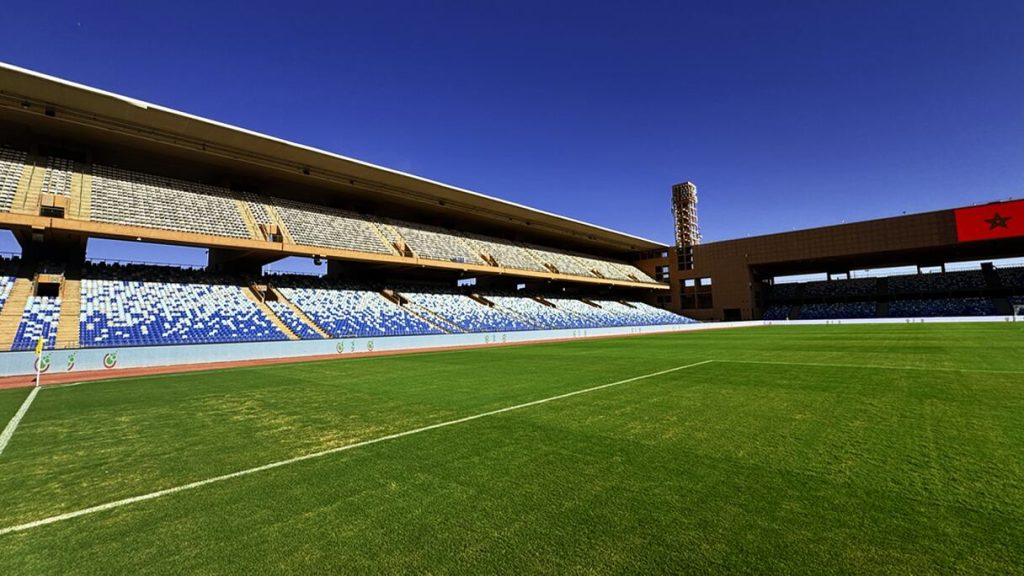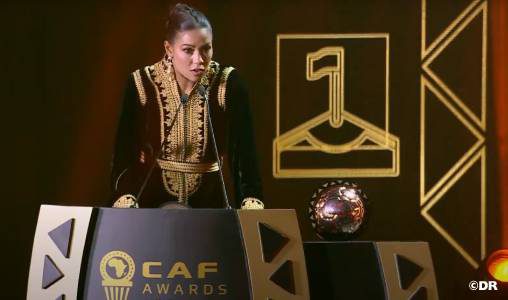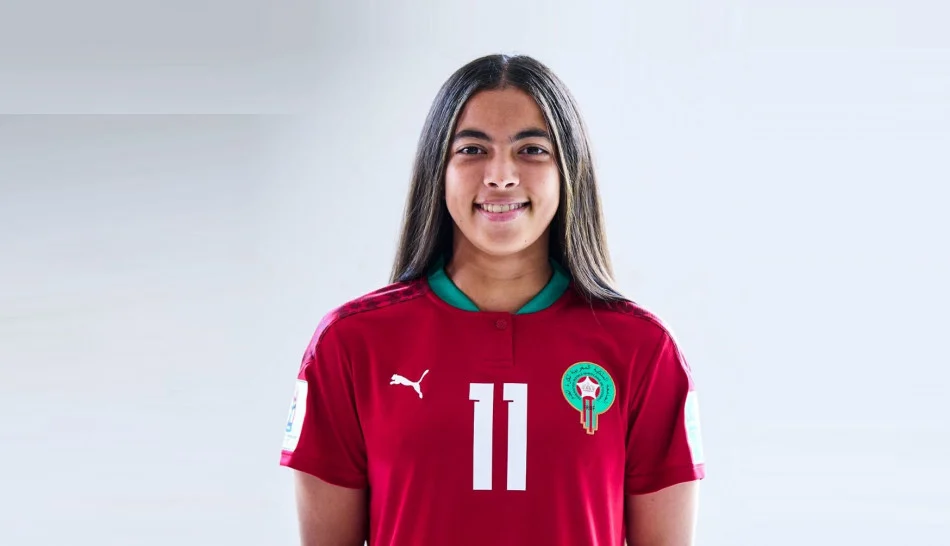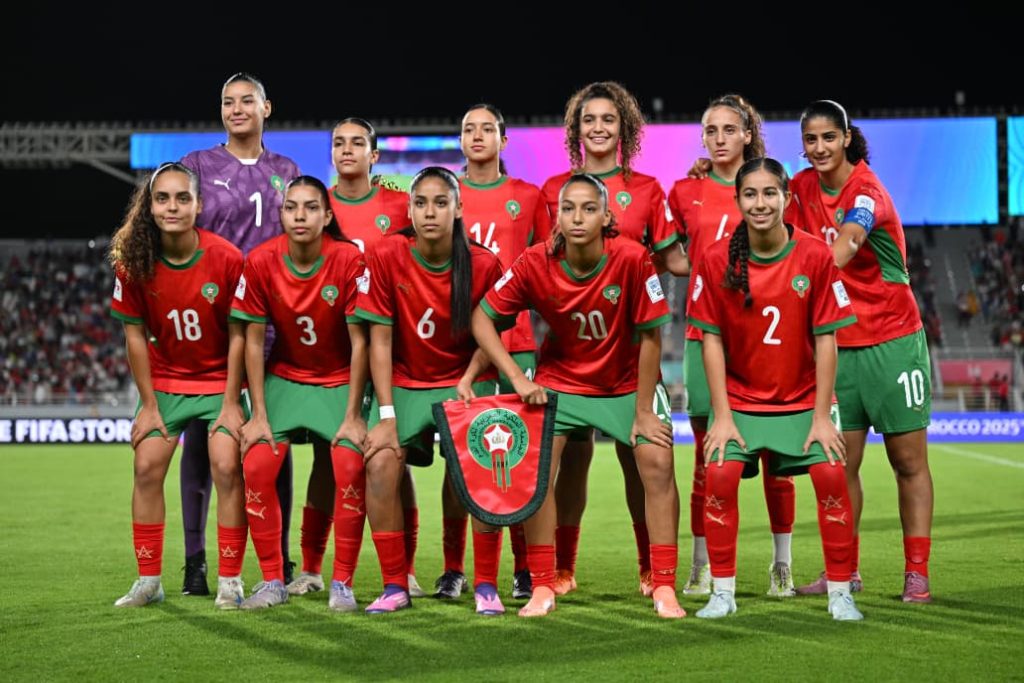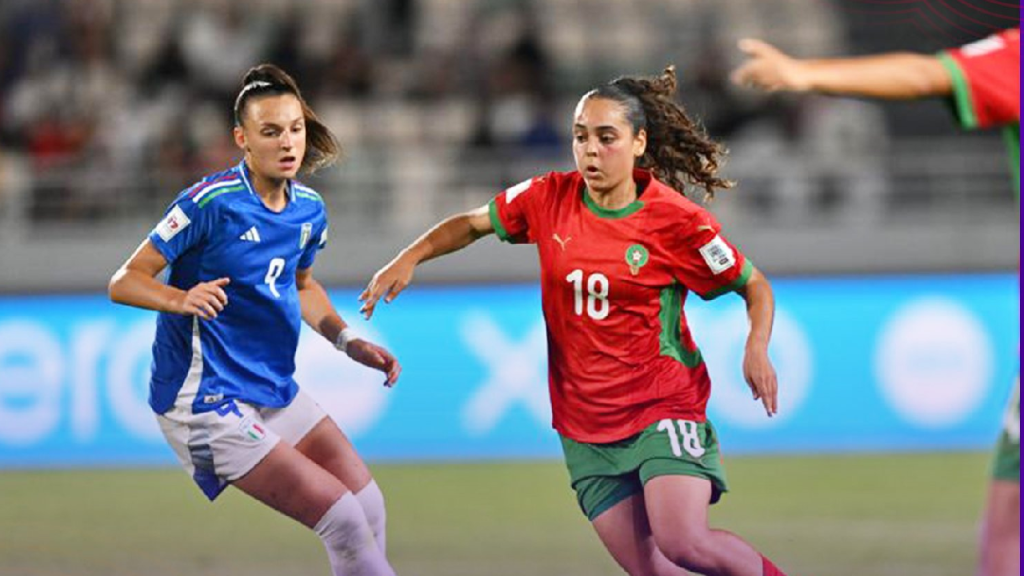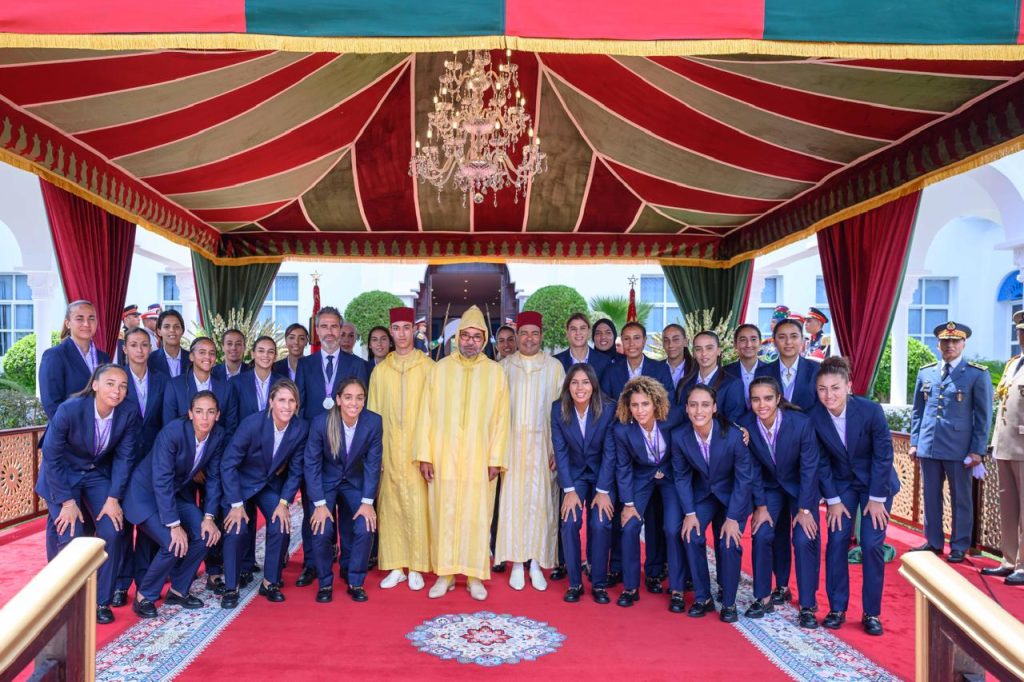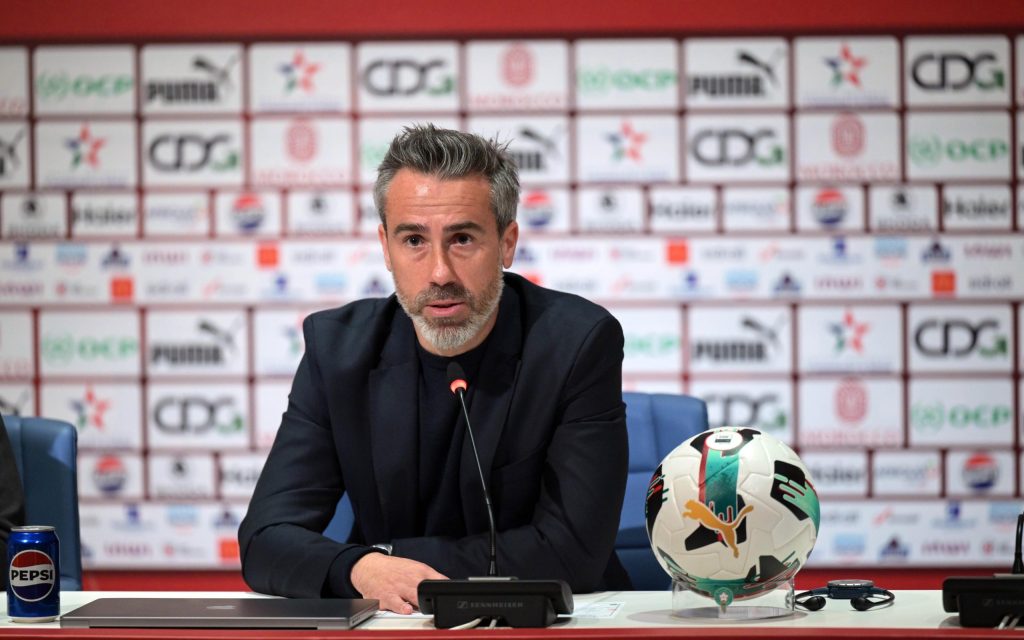The Grand Stade de Marrakech, which is poised to host the final phase of the Africa Cup of Nations (AFCON 2025) in Morocco, has undergone a major makeover following renovation work.
The stadium has already hosted prestigious competitions such as the FIFA Club World Cup in 2013 and 2014. Today, it underwent an upgrade that began in early 2024 and was completed in June 2025.
“The first phase of the upgrade of the stadium consisted of bringing it into compliance with CAF standards,” said Abdelkerim Bouilli, Director of Development of the Grand Stade de Marrakech and representative of the National Agency for Public Facilities (ANEP).
The main improvements focused on all the sports facilities, locker rooms, the mixed zone, and the media area, he told MAP, noting that the entire pitch was completely redone.
A panoramic restaurant with 180 seats was also added, along with the complete renewal of all the grandstand seating, now equipped with wider and more comfortable seats, he added.
As for the second phase, he continued, it will begin just after the AFCON and is scheduled for completion by the end of 2028. It will notably include the removal of the athletics track in order to increase the stadium’s capacity from the current 41,000 to 46,000 seats by 2030, along with full coverage of the stadium.
In a similar statement, Morad Karaoui, Regional Director of the National Company for the Construction and Management of Sports Facilities (SONARGES), said that “the residents of Marrakesh should be proud of this architectural gem.”
Highlighting that the first phase of work cost around 400 million MAD, he stated that the Grand Stade de Marrakech now features seven VIP lounges and 15 sky boxes.
The number of turnstiles has increased from 36 to 77, significantly reducing waiting time for both pedestrian and vehicle-borne supporters — now just one minute from the outer entrance to the stands — in compliance with CAF and FIFA standards, he noted.
He also pointed out that the stadium includes four training fields that meet FIFA criteria.
The Grand Stade de Marrakech is “set to undergo a transformation during the second phase of upgrades in preparation for the 2030 World Cup,” he further emphasized, adding that the stadium, currently rectangular in shape, will be converted to an octagonal format.
This Saturday at 9:00 pm, the stadium will host a friendly match between local club Kawkab (KACM), newly promoted to Botola Pro D1, and Tunisia’s Etoile du Sahel — giving Marrakesh fans a chance to discover the revamped stadium.
